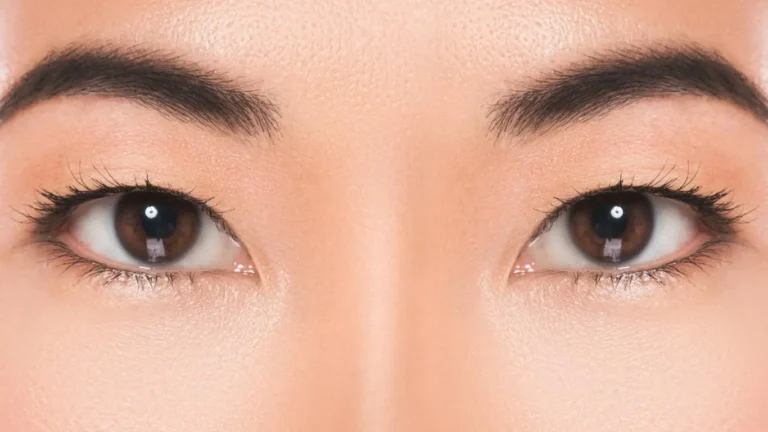Shocking Link: Can Asthma Cause Morning Headaches Daily?
Can asthma cause morning headaches? That’s a question I’ve heard more than a few times in the exam room—and as a pulmonary nurse practitioner, I’ve even asked it myself during early mornings when a dull ache settled in right between my eyes. If you’re waking up groggy, irritable, and already reaching for that bottle of ibuprofen, you’re not alone. Asthma doesn’t just mess with your lungs—it can sneak into your mornings in unexpected ways, and yes, headaches are one of them.
How Asthma and Morning Headaches Might Be Linked

Let’s break this down. Asthma is more than just wheezing or chest tightness. It’s a chronic inflammatory condition that affects the airways, and sometimes—especially when it’s not well controlled—it can disrupt your sleep and your oxygen levels at night. And when your brain isn’t getting the oxygen it needs, it’s going to let you know about it first thing in the morning… usually with a head-pounding reminder.
In clinical practice, I’ve seen patients frustrated by frequent morning headaches that didn’t respond to typical treatments. But once we dove deeper into their overnight asthma symptoms—coughing fits, nighttime awakenings, or using their rescue inhaler in the middle of the night—those headaches started to make a lot more sense.
Low Oxygen Levels and CO2 Buildup
When asthma flares up during sleep, your airways become inflamed and narrowed, making it hard for you to breathe effectively. This can lead to a drop in oxygen (hypoxia) and an increase in carbon dioxide (hypercapnia). Both of these imbalances are known triggers for morning headaches. Think of it like your brain being in a fog from the moment you open your eyes.
- Hypoxia: Not enough oxygen reaches the brain during the night.
- Hypercapnia: Carbon dioxide builds up because you’re not exhaling properly.
- Interrupted sleep: Your body isn’t hitting the deeper stages of rest it needs.
Could It Be Your Medication Timing?
This is something I always check with my patients. If you’re taking your asthma meds too early in the evening—or worse, skipping them—your lungs might not be well-protected by the time you hit the pillow. That could open the door to nocturnal symptoms and, yep, that morning headache.
Pro tip from the trenches: I often recommend shifting controller meds closer to bedtime (with your provider’s okay, of course). It’s a simple change, but it can work wonders.
Asthma, Sleep Quality, and Head Pain

Let’s not underestimate the role of sleep here. If your asthma is active at night, you’re probably not getting the kind of deep, restorative sleep your brain needs. Poor sleep doesn’t just leave you tired—it can be a huge trigger for headaches, especially migraines or tension-type headaches.
- Nighttime asthma symptoms disturb your sleep.
- Your brain stays in a semi-alert state, not getting full rest.
- You wake up groggy, foggy, and often with a dull or throbbing head pain.
One of my long-term asthma patients once described it like this: “It feels like I’ve been breathing through a straw all night while someone’s tapping a drum on my skull.” And honestly, that paints a pretty accurate picture.
Don’t Overlook Sleep Apnea
Another curveball? Some people with asthma also have obstructive sleep apnea (OSA)—especially if they’re overweight, have GERD, or snore heavily. OSA itself is a major cause of morning headaches, and it can make asthma worse, too. So it’s kind of a double whammy.
In cases like these, I usually refer patients for a sleep study. It’s not always asthma causing the headaches directly—it could be OSA quietly wreaking havoc overnight while asthma adds fuel to the fire.
When to Worry: Red Flags Worth Mentioning

Now, not every morning headache is because of asthma—but if you’re noticing a pattern, especially on days when your asthma feels more active, it’s time to pay attention. Here are a few signs it’s worth looping in your provider:
- You’re waking up with headaches more than 2-3 times a week.
- Your rescue inhaler use is creeping up overnight.
- You’re snoring, gasping, or feeling exhausted despite 8+ hours in bed.
- Headaches improve after using your inhaler or adjusting your meds.
I always say—your body whispers before it screams. If morning headaches are becoming your norm and you live with asthma, your body could be trying to tell you something important.
Can Asthma Cause Morning Headaches Due to Triggers in Your Environment?

Absolutely—your sleep environment can be a major contributor, and you’d be surprised how often this gets overlooked. I’ve had patients try every medication under the sun, only to find that the real culprit was hiding in their own bedrooms: dust mites, pet dander, mold, or even the fragrance from their “relaxing” lavender-scented candles.
When your asthma gets triggered overnight, you’re not breathing well, and that’s a recipe for—you guessed it—morning headaches. I always tell my patients to treat their bedroom like a cleanroom. It’s your recovery zone, not your personal candle museum or pet playground.
Simple Ways to Allergy-Proof Your Sleep Space
- Use allergen-proof covers on pillows and mattresses.
- Wash bedding weekly in hot water.
- Keep pets off the bed (yes, even the cuddly ones… sorry, Luna).
- Run a HEPA air purifier to keep airborne irritants low.
- Keep humidity between 30%-50% to prevent mold and dust mite growth.
True story: One of my patients swore up and down her asthma was under control, but she was still waking up with splitting headaches. Turns out, she had a leaky window frame that was letting mold sneak in right next to her bed. Once she got it fixed, her headaches? Gone. Just like that.
When Your Body’s Stress Response Adds to the Headache

Let’s talk about something that doesn’t get enough airtime: stress. Living with asthma can be stressful. Period. Especially if you’re constantly monitoring symptoms, adjusting meds, or losing sleep over a flare-up.
That chronic stress triggers your sympathetic nervous system (you know, the “fight or flight” mode), which can cause tension headaches or migraines. If you’ve ever woken up with a tight jaw, stiff neck, or that band-like pressure around your head—it might not just be asthma causing morning headaches. Stress could be the secret villain in your story.
Here’s what I usually recommend to my patients (and do myself, when life gets chaotic):
- Incorporate a calming bedtime routine—nothing fancy, just consistent.
- Try guided breathing exercises or meditation apps (I love Insight Timer).
- Cut back on late-night screen time—yes, that includes TikTok rabbit holes.
You’d be amazed how much smoother your nights (and mornings) go when your mind is just a little quieter.
Other Medical Conditions That Can Complicate the Picture

Here’s where my diagnostic hat comes on. If you’ve already ruled out poor asthma control, allergens, stress, and poor sleep hygiene, we might need to look at other health issues that could be joining the party. Morning headaches can be linked to a few surprising conditions that often fly under the radar.
GERD (Acid Reflux)
That burning feeling in your chest isn’t just annoying—it can also cause microaspirations during sleep, which irritate your lungs and worsen asthma symptoms. Plus, reflux itself can trigger headaches, especially if it disrupts your rest.
Bruxism (Teeth Grinding)
This one’s sneaky. Nighttime teeth grinding puts strain on your jaw and temples, which can lead to pounding morning headaches. Often linked to stress, anxiety, or misaligned bites. I usually ask patients if anyone has ever commented on them grinding their teeth at night—sometimes a partner is the first to notice.
Cluster Headaches or Migraines
In some cases, frequent morning headaches might not be asthma-related at all. Cluster headaches, for instance, often strike early in the morning and can mimic sinus or tension headaches. If your pain is centered around one eye, comes in bursts, or follows a pattern—it’s time to consult a neurologist. Better safe than sorry.
What You Can Do to Take Back Your Mornings

If you’ve been quietly asking yourself, “Can asthma cause morning headaches?”, hopefully by now the answer feels a bit clearer. Yes—it absolutely can. But it’s rarely just one thing. The body’s systems are deeply interconnected, and when something’s off with your lungs, your sleep, or your stress levels, your head will let you know.
Here’s what I tell my patients to start doing right away:
- Track your symptoms: Keep a simple log of when your headaches happen, your asthma symptoms, and what might be triggering them.
- Adjust your bedtime med schedule: Don’t assume one-size-fits-all. Everyone’s timing needs are a little different.
- Ask about a sleep study: Especially if you’re waking up tired, snoring, or gasping at night.
- Check your environment: Bedrooms can be full of invisible triggers—cleaning them up can make a massive difference.
And remember—you don’t have to figure it out on your own. Partnering with a provider who listens, understands, and looks at the full picture can be a total game-changer. Trust me, I’ve seen patients go from daily headaches to symptom-free mornings just by fine-tuning a few small habits.
How to Talk to Your Provider About Morning Headaches

If you’re waking up with headaches more days than not—and you’ve got asthma—it’s worth bringing it up at your next visit. I’ve had patients shyly mention their morning headaches as an “oh by the way” at the end of an appointment, but in reality, that info can be super valuable for tailoring their treatment.
Here are a few things to prep before your visit:
- Symptom Journal: Jot down when headaches occur, how long they last, where the pain is located, and what helps relieve them.
- Track Asthma Control: Note any nighttime coughing, shortness of breath, or inhaler use—especially around bedtime and during the night.
- Sleep Patterns: Do you snore? Wake up suddenly gasping? Toss and turn a lot? These are all clues your provider can use.
I always say: more info = better care. We love data. And no, it doesn’t have to be perfect—just honest.
Questions You Can Ask
If you’re unsure how to start the conversation, try these:
- “Could my asthma be contributing to these morning headaches?”
- “Should we consider adjusting my medication timing?”
- “Would a sleep study help rule out other causes?”
- “Are there any red flags that would suggest it’s something more serious?”
Don’t wait until the headaches become debilitating. Early discussions can lead to quick fixes and better mornings—trust me, I’ve seen it firsthand.
Lifestyle Tweaks That Can Help You Wake Up Clear-Headed

If you’re still wondering, “Can asthma cause morning headaches?”—by now, you probably realize the answer is a resounding yes… but it’s rarely acting alone. Often it’s a perfect storm of triggers, habits, and overlooked medical conditions. The good news? There’s a lot you can control starting tonight.
Here are some tried-and-true habits I recommend to my patients—and use myself:
- Set a consistent bedtime and wake time—even on weekends. It helps your body reset.
- Avoid late-night eating or alcohol, especially if GERD is in the picture.
- Use a peak flow meter regularly to monitor lung function—early changes can help you prevent overnight issues.
- Keep a humidifier or purifier running, especially during allergy season or dry months.
- Take your controller meds consistently—it sounds obvious, but I’ve seen even the most health-savvy patients miss doses during busy weeks.
And please don’t skip follow-ups. Even if things seem okay. Sometimes that “just fine” asthma can be sneakier than full-blown flares.
What I Tell My Patients Who Feel Discouraged
I’ve had patients break down in my office because they’ve tried so many things and still wake up miserable. And I get it—it’s frustrating when you’re doing everything “right” and still feel off. But here’s the truth: chronic conditions like asthma require constant fine-tuning. Your body changes, your environment changes, even your stress levels change.
What worked six months ago might need a tweak today. That’s not failure—it’s just part of being human and living with a chronic illness.
The key is to stay curious, stay open, and never stop advocating for yourself. Whether that means asking new questions, trying a different med schedule, or finally investing in that air purifier you’ve been eyeing—every little bit counts.
References
- Asthma and Allergy Foundation of America
- Centers for Disease Control and Prevention
- Sleep Foundation
- American Gastroenterological Association
- American Lung Association
Disclaimer
This article is for informational purposes only and does not replace professional medical advice, diagnosis, or treatment. Always talk to your healthcare provider if you’re experiencing persistent headaches, changes in asthma symptoms, or other health concerns. What works for one person may not work for another, so personalized care is always best.

Bianca Nala is a compassionate Nurse Practitioner with a strong background in primary and respiratory care. As a health writer for Healthusias.com, she combines her clinical expertise with a talent for clear, relatable storytelling to help readers better understand their health. Bianca focuses on topics like asthma, COPD, chronic cough, and overall lung health, aiming to simplify complex medical topics without losing accuracy. Whether she’s treating patients or writing articles, Bianca is driven by a single goal: making quality healthcare knowledge accessible to everyone.







